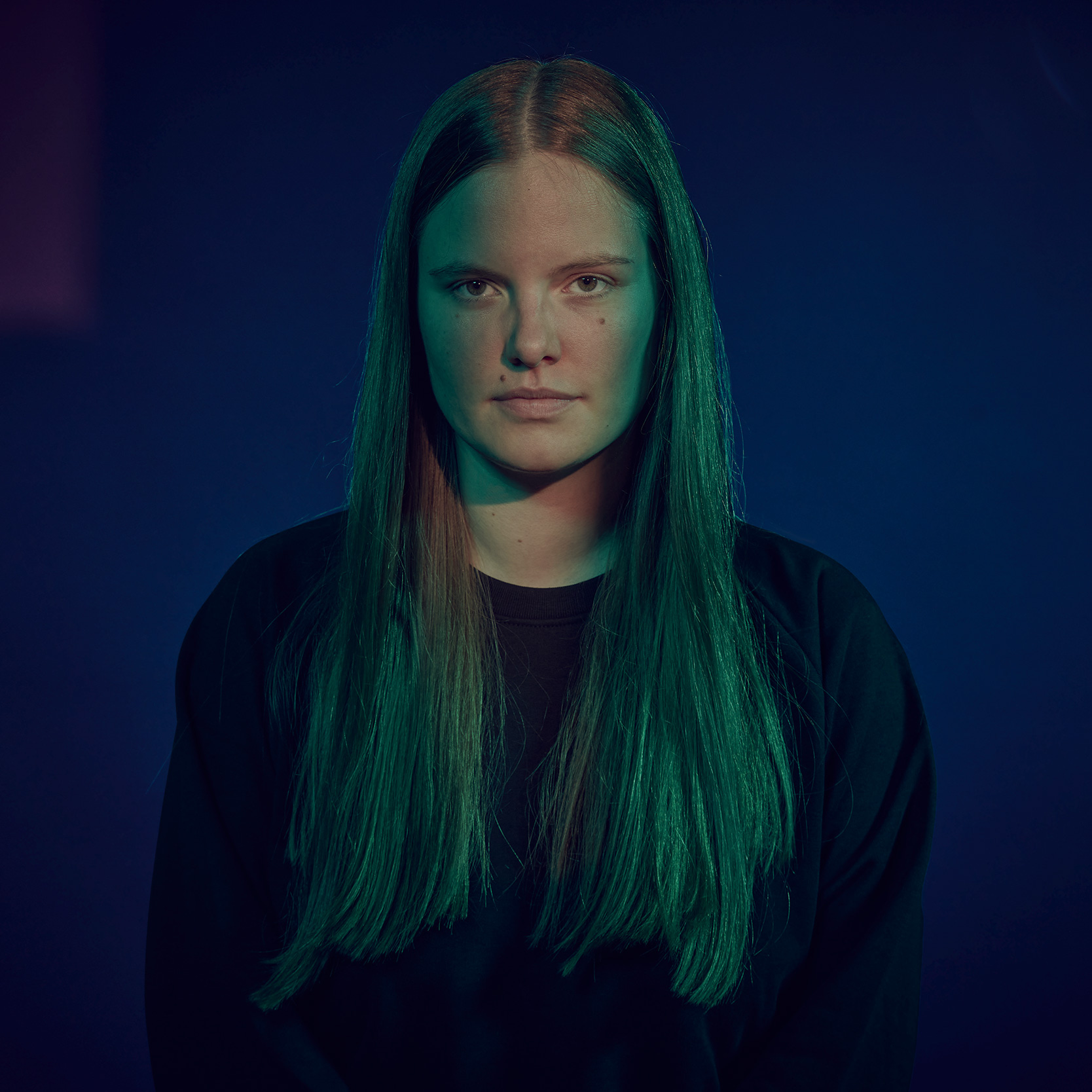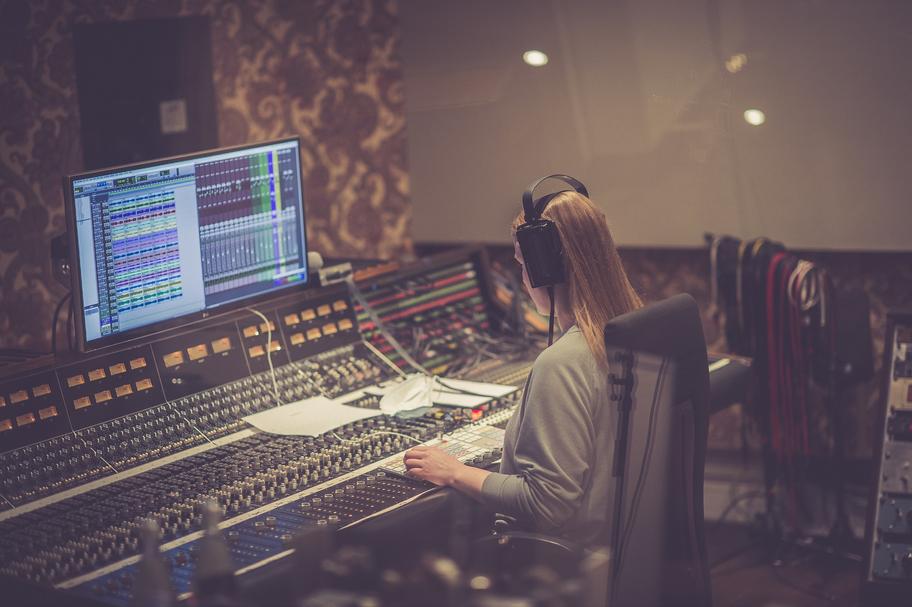What is it like working at an analog recording studio like Clouds Hill? Linda Dağ gives us a glimpse into her life as a recording and mixing engineer
Let’s start with the typical question everyone gets asked: How would you describe your musical background? And how has this passion for recording started for you?
I’ve been a music fan as long as I can remember. When I was a kid, I spent the afternoons after kindergarten/primary school in front of our stereo and just listened to the radio for hours, then, when a good song came on, quickly pressed record on the tape deck. So I collected all the songs I liked and played them all in an order that suited me on new cassettes, meticulously labeled, and so on. I got my first album at the age of 6, which my mother helped me to translate and understand all the lyrics by using a dictionary – it took hours. At that time I already wanted to be able to change the music, for instance guitars quieter, drums louder or similar. I am not a musician myself, I am simply a music fan who enjoys feelings, sounds and melodies.
Clouds Hill is well known for being an analog recording studio. Could you explain to our audience what the main differences between analog and digital recording are?
For me the main difference is the way of working. When you work analog, you often have to make decisions earlier in the process, which I really like. Also, you tend to focus more on your ears, digitally you have too much visual ” assistance “, for example, if I turn an EQ and do not see the number how much dB I have just added, I’m more daring. Haptic knobs are also just way more fun than mouse clicks. When working on tape there is also the advantage that you have a time limit, you don’t “collect” thousands of takes plus you have a track limit, so you decide more consciously for and against signals and microphones.
Does analog recording have important limitations, is it for every artists or would you consider there are genres completely impossible for analog?
Yes, as I already mentioned: time and track number limits often help in the work process, because decisions have to be made more consciously and a lot earlier on. I can’t think of any music genre right now that is impossible for analog. But anything is possible for digital as well.

To get to know you a little bit better would you tell us a little bit about the journey that brought you to Clouds Hill, the studio which now has been your artistic home for over 10 years?
When I started looking for studios where I could possibly work at, I stumbled upon Clouds Hill. I was very impressed with the equipment list. I also really liked the atmosphere on the photos – it didn’t look like a politicized glossy studio, but like a cozy and creative studio. As a result, I simply wrote an email to Johann saying that I would love to work at Clouds Hill and if he was ever looking for someone, he should get in touch. One week later I visited the studio for the first time, two weeks later was my first official day working here – and now it has been nearly eleven years.
Every musician has its own approach when working on a record. Can you tell us about any recording experience that has inspired you or influenced your way of working?
Every single session inspires me. I learn new things from every musician, producer, and engineer. I’m inspired by both, the people that know exactly what they want and have a clear vision and by those that improvise everything. I’m inspired by all emotional outbursts of any kind, whether it’s fighting, crying, or celebrating. There is something about every person with their own approach to music and emotions.
Is there any particular projects that you are proud of? Could you tell us about it?
Being proud of myself is generally something rather foreign to me. I rarely feel pride towards myself because it’s always a team effort. I am happy about everything that goes well and of course I know what I have contributed to it, but even that wasn’t just my doing. There are sessions I look back on and am very happy about the result, sometimes I am happy about the interpersonal character of a session, sometimes I am happy because of how a problem was solved and sometimes I am happy about all of it. There are no projects that I would like to highlight here.
In a production sometimes you get hired by people you don’t even know with different opinions and perspective musically wise. How do you merge the project own personality with your style and perspective?
The challenge is, you really have to get involved with each other, open up, talk a lot – then it happens automatically. In addition, I always hold myself and my ideas back, because I see myself as a service provider and the ideas of the musicians are always my priority and main focus.
Nowadays with digital music it is commonly said that everyone can make music. What is your opinion regarding this?
That is true, everyone can make music and I love that everyone has the option. Everyone has the opportunity to express themselves and find their talent. Any music that comes out of feelings or triggers feelings in other people has its right to exist. The variety of music that we have access to can get overwhelming at times, but I think it’s wonderful that there’s so much variety.
What is the workflow like? From getting the inspiration to materializing the ideas and the actual recording sessions. Because music is art and as any artistic project, it seems hard to assign a time or fit a schedule for the creation of an album or musical project.
Well, I’m not the one who has song ideas and then has to write them. Because I work as a recording and mixing engineer, I try to find the right sound for the songs. That’s why there aren’t so many different work steps for me. I don’t really have a fixed workflow, because I try to approach every session, every person and every song differently and see what is required in that particular moment.
What do you think makes Clouds Hill a great studio? Why should every artist have the experience of recording here at least once?
Clouds Hill is special because of the atmosphere in the studio. It’s about feeling comfortable in order to be able to be creative. And, of course, there’s insanely great equipment.
